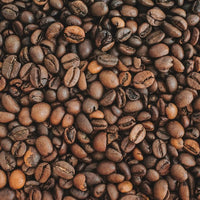The classic divide: coffee or tea? For some, these drinks are an absolute necessity to get through an exhausting day. For others, coffee and tea are more about the experience, the process, or even the prestige that comes along with brewing the perfect cup. While there are pros and cons (and plenty of personal bias) that come along with both options, sometimes even the most avid tea drinkers need to switch things up.
Whether it’s to cut down on the caffeine from tea that can leave tea enthusiasts up all night or to avoid stained teeth, there are a variety of reasons one might be in search of tea alternatives. Here we’ll be outlining some tea alternatives, including some of the benefits and drawbacks of each, with comparison to your average cup of tea.
Firstly, to build the basis of our comparison, we must outline what tea offers us. Sharon O’Brien MS, PGDip of Healthline, reminds us that black tea has more caffeine than green tea, by a lot. Something like a cup of matcha has roughly 70 mg of caffeine for the same serving size - on par with a cup of less caffeinated coffee, for example.
In contrast to the extra pep in your step that caffeine can provide, tea also has chemicals that can induce a more relaxed and happier state as well, which perhaps helps to explain why tea can really hit the spot on a tough day. Lastly, there are highly antioxidant effects with tea that can improve health and reportedly affect longevity as well. While the results are not yet in regarding these effects in humans, it looks like tea alternatives may have large shoes to fill!
Tea Alternatives
Coffee
Moving to our first contender, coffee— commonly seen as the ‘opposite’ of tea, this option provides many of the same perks as tea but without as many positive impacts health-wise. Coffee can often pack a significantly higher amount of caffeine, especially in concentrated drinks, so for those sensitive to caffeine or those with health concerns, it may not be the right replacement for a gentler brew of tea. For others, coffee might give the added burst of energy for folks to feel awake and alert through the longest days.
However, coffee is technically a drug, and it can have some pretty inconvenient side effects. It’s important to note that coffee can often cause some gastrointestinal discomfort— aside from the caffeine, coffee often has milk and sweeteners that can cause a laxative effect. The mix-ins also add calories, so for those looking for a healthier, lower-calorie option, there’s always black coffee, which doesn’t always have the same luxurious smooth taste. One last downside to coffee is that it can be dehydrating with a high amount of consumption, especially due to its laxative effects. Drinking water is necessary to stay hydrated and maintain good health.
Basically, coffee isn’t our first choice of tea substitutes. The effects that it can have on your body mean that it should really only be consumed in small amounts.
Lemon Water
For a caffeine-free alternative, try lemon water! Served warm, this can be a soothing yet invigorating way to start the day or have a small pick-me-up in the afternoon. When chilled, lemon water can offer an additional zing! Lemon water is easy to make by just adding a squeeze of lemon to a water bottle or glass— for even stronger lemon flavor, toss in the rest of the slice, but beware that there might be a bitter flavor from the oils in the peel.
This can be a great way to drink more water, given the fun and exciting flavor, as well as get in some extra vitamin C. Anecdotal evidence points to some added health benefits of lemon water, all the way from weight loss to prevention of kidney stones. If true, these perks make lemon water a serious caffeine-free contender as a potential alternative to tea!
For an extra touch of sweetness to balance out the lemon— add honey! Honey water on its own can be a delicious morning treat when warm but can also be added to other drinks as well. Warm lemon water with honey has a very similar soothing effect to tea, but without the tannins that give tea its bitterness, or the caffeinating effect that can keep us up all night. Honey can be good for your health as well as a healthier sweetener for drinks, considering the high number of antioxidants present in honey. Fresh local honey can also help with allergies because it gives your body and immune system some exposure to local pollen.
Coconut Water
Coconut water can be a great alternative to tea with a slightly sweet and fruity twist! Coconut water brings along with it tons of health benefits— vitamin C, necessary electrolytes like potassium and magnesium, and even rarer but still essential minerals like manganese. These necessary vitamins and minerals have far-reaching effects such as improving heart health, and the increase in hydration is known to help with kidney function.
Being hydrated is also a great way to avoid feeling sluggish and ill. Much like lemon water, adding the extra flavor to water can be a way to encourage more water drinking and help maintain the best health possible. Another health perk shared by coconut water and tea: antioxidants! While the extent that these antioxidant properties may impact human health has yet to be fully elucidated, the anecdotal evidence points in a good direction.
Rooibos
Rooibos, while technically a tea brew, is far from the traditional teas made from tea leaves that are on supermarket shelves. It is an old South African drink made from the leaves of the Aspalathus linearis bush, which have a sweet and slightly nutty flavor profile. A stronger brew may even produce smoky, earthy, or woody flavors for drinkers— a little bit of variation compared to standard teas. Similar to normal teas, however, there are two main variations, a grassy ‘green’ and fermented ‘black’ form that can be used in tea-like drinks. With this in mind, rooibos is an excellent option for those looking for the tea experience without the effects that caffeine and tannins have on the body and on potential medication conflicts.
Similarly, rooibos packs an antioxidant punch that can help protect your health and switch up your routine. Just be sure to be careful when adding sugar or milk because these small additions can impact your health if you’re looking to cut down on processed sugars and added calories, this might be a great way to incorporate dairy-free milk substitutes and natural sweeteners like stevia or honey!
Ginger Water
Another that makes a great switch from tea is infusing water with ginger. This can be done quickly by boiling water with ginger to make an easy warming drink, or more slowly for a cool drink by roughly chopping ginger and letting it infuse slowly into room-temperature water before chilling to serve. Either way, ginger offers many improvements to one’s health; ginger water has been anecdotally linked to soothing nausea, lowering cholesterol, helping with weight loss, and improving digestion!
Additionally, ginger contains antioxidants, much like tea and other drinks, which help your body fight signs of aging, among many other effects! If the warming taste of ginger is too strong for your palate, add a squeeze of honey to sweeten and lighten the flavor. The added health benefits of honey are too good to pass up! It’s also important to note that ginger often has an energizing and even pain-relieving effect— something that’s important to keep in mind if it’s late in the day to avoid restless nights when trying to go to bed.
Golden Milk
Golden milk, a drink long popular in India and commonly used in Ayurvedic medicine, lends its name to the turmeric powder that makes up the spices added to the milk or milk-alternative base. This drink may be one of the easiest, involving just heating up the milk either in the microwave or on the stovetop, and adding in spices like turmeric, cinnamon, ginger powder, and more. To boost the flavor and smoothness of this warm drink, feel free to add a small scoop of coconut oil and honey or coconut sugar.
This drink can also be enjoyed without any additions at all, just basking in the warming earthy flavors, due to the natural sweetness from the spices themselves. A last note about this drink is that the turmeric base brings tons of curcumin, the compound already mentioned in ginger water that has antioxidant properties and improves health! Turmeric can help with mood, digestion, blood sugar, and more! If you already have these spices in the cabinet, there’s nothing to lose by mixing up a delicious cup of golden milk.
Mud!
Ok, ok, maybe this isn’t exactly a tea alternative, considering Masala Chai is one of the ingredients. However, mud is a fantastic option if you want something other than a standard cup of tea with milk, and because it has so many other good-for-you ingredients, it’s an even better choice. Try drinking the above options alongside mud for even more added benefits.
In Summary
All in all, there’s no easy one-size-fits-all response to the question, “What makes a good tea alternative?” From caffeine-free options like rooibos and ginger water to calorie and sugar-free options like lemon water, it really takes a process of trial and error to evaluate what you’re looking for in a drink. We still think the reigning champion is MUD\WTR™, of course. If your go-to drink is one of the ones we’ve mentioned or you have advice— we’d love to hear about it!
Sources:
Link 1 - https://www.healthline.com/nutrition/green-tea-vs-black-tea
Link 2 - https://www.nccih.nih.gov/health/tea




